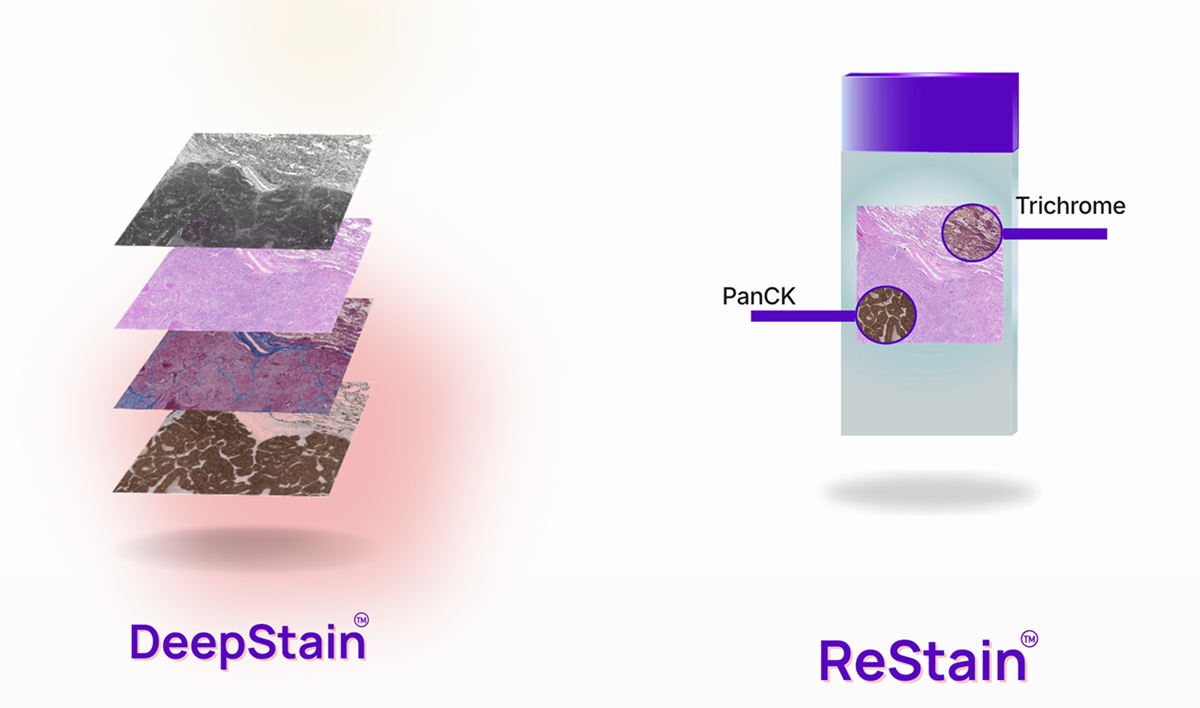Proscia and Pictor Labs Bring AI-Powered Virtual Staining to Digital Pathology
Proscia, a digital pathology software company, has announced that its Concentriq platform will now include virtual staining capabilities powered by Pictor Labs. The integration is aimed at reducing reliance on traditional chemical staining, which is costly and destructive to tissue, while expanding access to diagnostic methods such as hematoxylin and eosin (H&E), immunohistochemistry (IHC), and special stains.
Staining is a central step in pathology, as it allows tissue structures and biomarkers to be visualized under a microscope. Conventional staining requires reagents, manual processing, and physical slide preparation, making it slow and difficult to reproduce consistently. Virtual staining replaces this process with AI models trained to digitally replicate the visual effect of stains. Instead of waiting hours or days, laboratories can generate whole-slide stained images in minutes from label-free inputs, while preserving the original tissue sample for further analysis.
Alongside the integration, Pictor Labs has also joined Proscia Ready, an alliance of solution providers working to support broader adoption of digital pathology across life sciences organizations and clinical laboratories.
Pictor Labs specializes in AI-powered virtual staining technologies that generate stain-equivalent images such as H&E and IHC directly from unstained slides without chemicals or tissue loss. Its approach uses deep learning models trained on co-registered pairs of unstained and chemically stained tissue, curated with input from board-certified pathologists, to convert tissue autofluorescence into diagnostic-quality images.
The company’s product suite, currently intended for research use only, includes DeepStain, which provides virtual histological staining of label-free tissue, and ReStain, which enables virtual re-staining of existing H&E images. By eliminating the need for reagents, Pictor’s methods preserve samples for additional analyses, reduce chemical waste, and open opportunities for multiplex assay development and biomarker discovery.

Image credit: Pictor Labs product suite
Proscia develops AI-enabled pathology solutions for both research and clinical settings. Its Concentriq platform functions as a cloud-based enterprise system that unifies pathology data from tissue images, molecular results, and clinical records. It enables laboratories to digitize workflows, run multiple AI models in parallel, and integrate third-party tools through APIs.
The platform is reportedly used by more than 12,000 pathologists and scientists worldwide, supports workflows at 16 of the 20 largest pharmaceutical companies, and is connected to a global laboratory network that had diagnosed 2.4 million patients by early 2025, with annual volumes expected to exceed 8 million cases by the end of the year. By incorporating virtual staining into Concentriq, Proscia is extending its portfolio of AI applications designed to support precision medicine and reduce the costs of large-scale pathology operations.
Alongside virtual staining, Proscia recently introduced Aperture, an AI pathology platform built on Concentriq that connects diagnostic labs with biopharma companies to accelerate clinical trial enrollment and biomarker-driven drug development.
We track collaborations like this weekly in Where Tech Meets Bio—our newsletter on startups, platforms, and deals at the intersection of biotech and digital.
Topic: AI in Bio